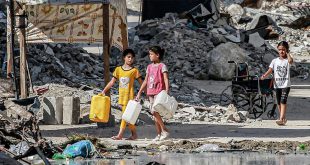This article attempts to clarify a number of issues pertaining to the actual attitudes and relationships between the marja’iyya and politics in Iraq.
Since the fall of the Ba’athist regime in 2003, the Shi’i religious establishment in Iraq has come to the fore as a signifcant political force, intervening, guiding, supporting and opposing various types of developments. Its prominence has been directly related to the realization that the Shi’a constitute an absolute majority in Iraq and hence would have the primary influence in a democratic state. Alongside the recognition of its importance, some analysts tend to assume that the Shi’a are more inclined than others in Iraq to follow their religious and cultural leadership. This article attempts to clarify a number of issues pertaining to the actual attitudes and relationships between the marja’iyya and politics in Iraq. First, it examines three important approaches to an activist understanding of the role of the marja’iyya in politics and comments on the actual political movements that arise from them. Second, the article analyzes the role of the paramount figure in the marja’iyya in Najaf, Ayatollah Ali Sistani and his attitudes towards politics and some of his active interventions in Iraqi politics. Finally, it comments on outstanding problems and failures within the leadership of Shi’i politics and the limitations of the marja’iyya in promoting democratic and civic politics. Any political actors in contemporary Iraq must take cognizance of the role of the marja’iyya but also account for the deficits that need to be overcome to propel Iraq beyond a compromise of ethnic and confessional affliations.
Bibliographic Information
Title: Political mobilization and the Shi’i religious establishment (marja’iyya)
Author(s): Sajjad Rizi
Published in: International Affairs, Volume 86, Issue 6, November 2010, Pages 1299–1313
Language: English
Length: 15 page
Political mobilization and the Shi’i religious establishment
 Ijtihad Network Being Wise and Faithful Muslim in the Contemporary World
Ijtihad Network Being Wise and Faithful Muslim in the Contemporary World

